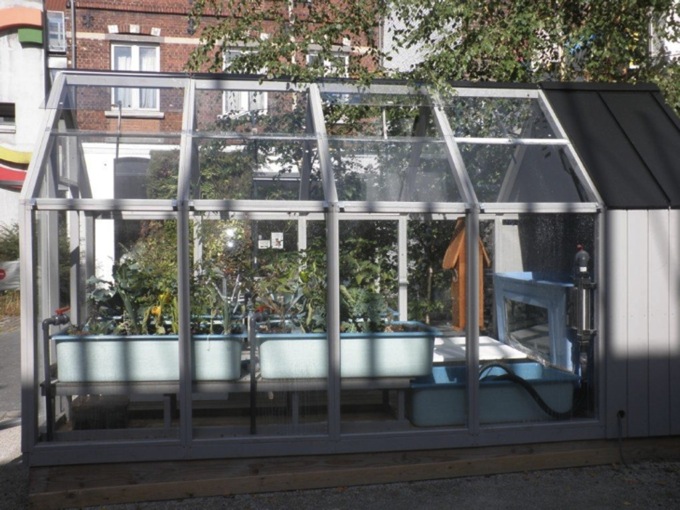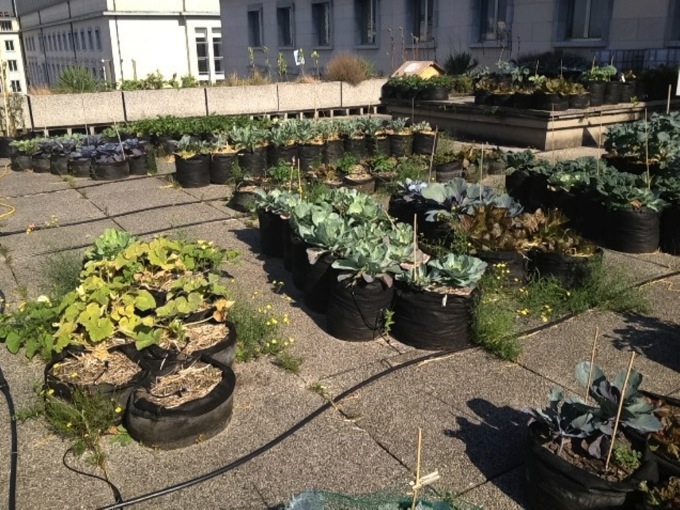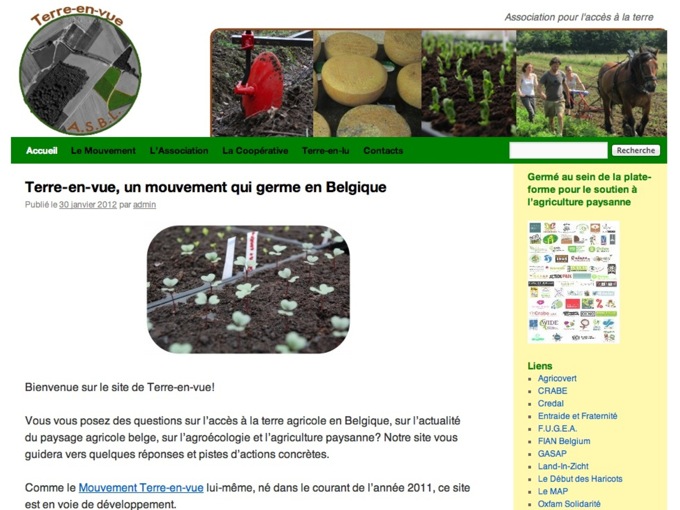Brussels / Opportunities and challenges
A strong engagement with food
Beyond the cliché of chips and mussels, Brussels inhabitants and policy makers show strong interest in food. Policy documents address all stages of the local food chain, notably the 2009 governmental declaration (see introduction)that lead to the adoption of a Regional Action Programme of Support to Sustainable Food Demand in 2012; the Kitchen garden action plan (2012); and the 2010 Waste prevention plan that tackles food waste.
Moreover, Brussels Environment is involved in the European Interreg IVb Green cook project to reduce food waste (2010-2014) and takes strong action on sustainable canteens leveraging on catering companies through green procurement.
A strong political will towards sustainable food
The main objective of installing farms in town is to demonstrate that it is possible to relocate part of production and bring the consumer closer to the production cycle. This complements a more global supply nearby, which means also and above all, the development of cooperation with the other two regions of Belgium.
Urban production is set as a goal for the regional government, with use of available land to produce sustainable food for the citizens ranging from reallocation of surfaces to agricultural production and commercial gardening to intensification of private gardens and use of public spaces to grow food. In addition to maximising the remaining arable land, a specific intention is to explore the potential for rooftop gardening with a first inventory of 394 ha of flat roofs available for urban farming. The ABATAN greenhouse project to be implemented on the renovated slaughter house including vegetable gardens on the rooftop and aquaponics experimentation are emblematic of the will to intensify urban production. Such urban agriculture is labour intensive and therefore generally assessed as too expensive. The intention of the Minister of Environment is to turn this constraint upside-down through an Employment-Environment partnership between the government and all stakeholders. The aim is to build synergies between labour-intensive sustainable solutions and creation of green companies and green jobs in particular for youngsters with low education levels. A recent study yet to be confirmed reveals a potential of thousands of jobs related to sustainable urban farming and food transformation, new local distribution schemes, waste management.
| Rooftop garden experimentation | Vegetable growing in bags experimented on the Royal library rooftop: an educational and awareness raising project on a famous building in the centre of Brussels with views to stimulate systematic terrace gardening and more production-oriented developments. | Aquaponics experimentation | Aquaponics is the marriage of aquaculture (fish farming) and hydroponics (growing vegetables without soil). In June 2012, the “Village Partenaire” in partnership with GroupE One developed a pilot scale aquaponics unit. Its purpose is to act as a catalyst project and test a series of economic parameters.
| Aquaponics experimentation | Aquaponics is the marriage of aquaculture (fish farming) and hydroponics (growing vegetables without soil). In June 2012, the “Village Partenaire” in partnership with GroupE One developed a pilot scale aquaponics unit. Its purpose is to act as a catalyst project and test a series of economic parameters.
Towards consolidation and innovation
Activating stakeholders around food reveals an important potential for innovations and in particular for hybrid solutions involving citizens, public administration and private sector. The first local support group meeting was the occasion for a lively exchange of ideas for possible future initiatives, such as citizens investing collectively in agricultural land to prevent speculation and ensure available land for young farmers (refer to box: Terres en vue); pairing a neighbourhood with an agricultural area in difficulty; intensifying the use of public industrial canteen kitchens making them available to cooking schools or citizens who want to make preserves in the summer; etc.
Beyond these individual examples and ideas the city is interested in consolidating and synergizing all the potential activated around sustainable food.
| Terres en vue | Terre-en-vue is an NGO and cooperative that facilitate access to land. They support agroecological projects either through helping new farmers to start up or by assuring the maintenance of existing farms. Citizens can buy shares in the cooperative which in turn buys agricultural land thereby putting an end to speculation.
